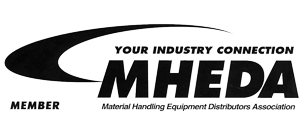
Mastering the Art of Safe and Efficient Operations: Forklift License Training in Canada
In the bustling world of warehouses, construction sites, and industrial facilities, forklifts play a pivotal role in material handling and logistics. Operating a forklift requires a unique set of skills, and obtaining a forklift license is a crucial step in ensuring safety and efficiency in the workplace. This article explores the importance of forklift license training in Canada, the key elements involved, and the benefits it brings to both employers and operators.
The Significance of Forklift License Training
- Safety First: Forklifts are powerful machines that can pose serious risks if not operated with care and precision. Forklift license training emphasizes safety protocols, hazard awareness, and emergency procedures. Operators learn to navigate through tight spaces, handle heavy loads, and manage potential risks, reducing the likelihood of accidents and injuries.
- Legal Compliance: In many jurisdictions, operating a forklift without a proper license is against the law. Forklift license training ensures compliance with local regulations and standards. Employers who prioritize proper training not only contribute to a safer work environment but also protect themselves from legal repercussions.
The Training Process
- Classroom Instruction: Forklift license training typically begins with classroom instruction. Trainees learn about the fundamental principles of forklift operation, safety guidelines, and the importance of load balance. Understanding the theoretical aspects is crucial before moving on to practical training.
- Practical Training: Hands-on experience is a cornerstone of forklift license training. Trainees practice operating a forklift under the supervision of experienced instructors. This phase includes maneuvering through obstacle courses, lifting and stacking loads, and mastering precise control of the forklift. Practical training allows operators to apply theoretical knowledge in a real-world setting.
- Evaluation and Testing: To earn a forklift license, operators must undergo evaluation and testing. This involves demonstrating proficiency in various forklift operations, adherence to safety protocols, and the ability to handle unexpected situations. A combination of written exams and practical assessments ensures a comprehensive evaluation of an operator’s skills.
Benefits of Forklift License Training
- Improved Workplace Safety: Forklift license training significantly contributes to improved workplace safety. Well-trained operators are more aware of potential hazards, know how to handle equipment properly, and are better equipped to prevent accidents. This not only protects employees but also safeguards valuable inventory and equipment.
- Increased Efficiency: Trained forklift operators are more efficient in their tasks. They can navigate through tight spaces, handle loads with precision, and complete tasks in a timely manner. This increased efficiency translates to higher productivity, reduced operational costs, and a smoother workflow within the workplace.
- Reduced Equipment Damage: Forklift license training emphasizes proper handling techniques, reducing the risk of equipment damage. Skilled operators are less likely to cause accidents that result in forklift damage or damage to the goods being transported. This leads to cost savings for employers and ensures the longevity of forklift equipment.
- Boosted Employee Confidence: Obtaining a forklift license boosts an operator’s confidence in handling the equipment. This confidence not only improves their job performance but also fosters a positive work environment. Well-trained and confident operators are more likely to communicate effectively, collaborate with colleagues, and contribute to a cohesive team.
Conclusion
Forklift license training is an essential investment for both employers and forklift operators. It goes beyond mere compliance with regulations; it is a commitment to creating a safer, more efficient workplace. Through a combination of classroom instruction, practical training, and evaluation, operators gain the skills needed to operate forklifts with precision and safety.
By prioritizing forklift license training, employers not only adhere to legal requirements but also ensure that their workforce is equipped to handle the challenges of the dynamic industrial landscape. The benefits, including improved safety, increased efficiency, reduced equipment damage, and boosted employee confidence, make forklift license training a crucial component of responsible and effective workplace management. As the industrial world continues to evolve, the mastery of forklift operations through proper training remains a cornerstone for success and sustainability.
By: Abdus Subhan




